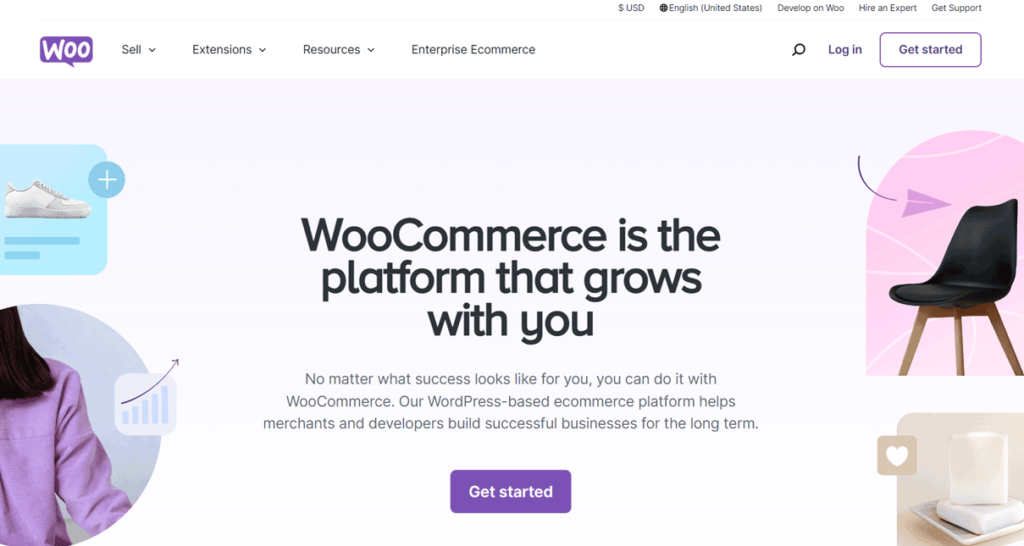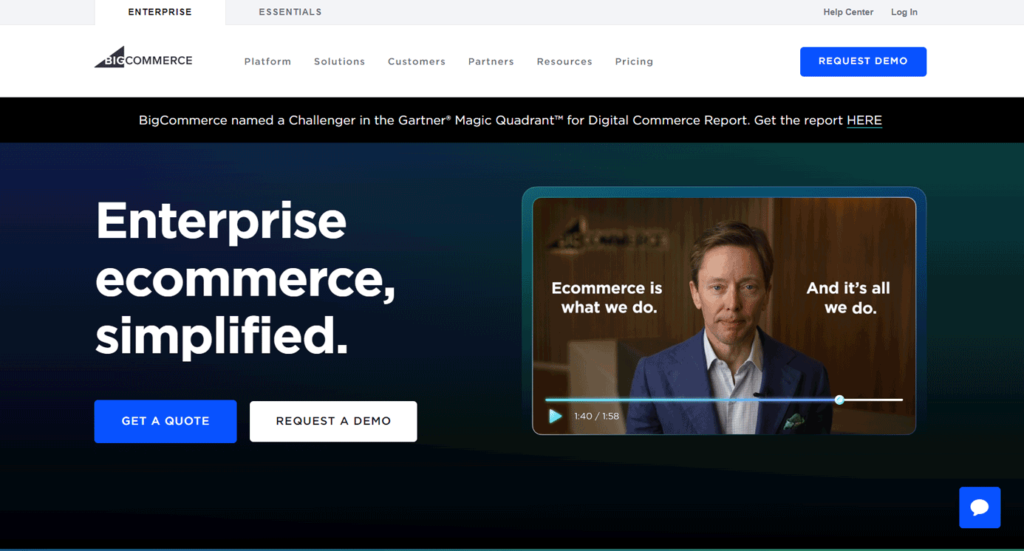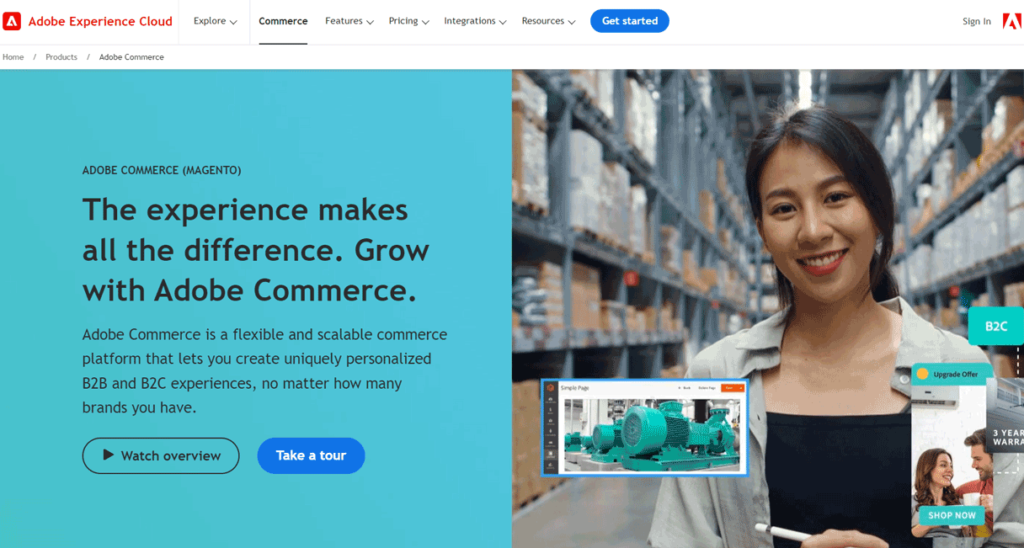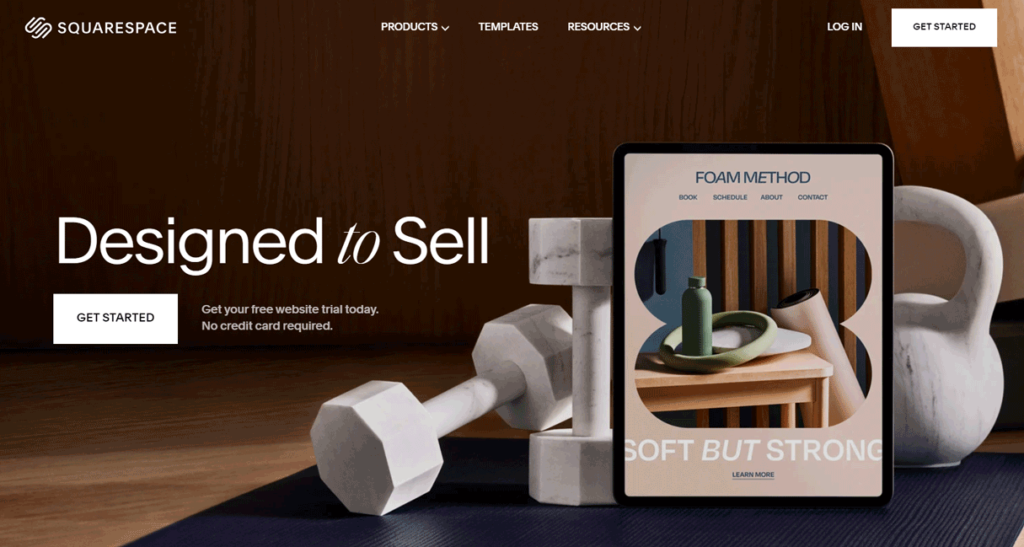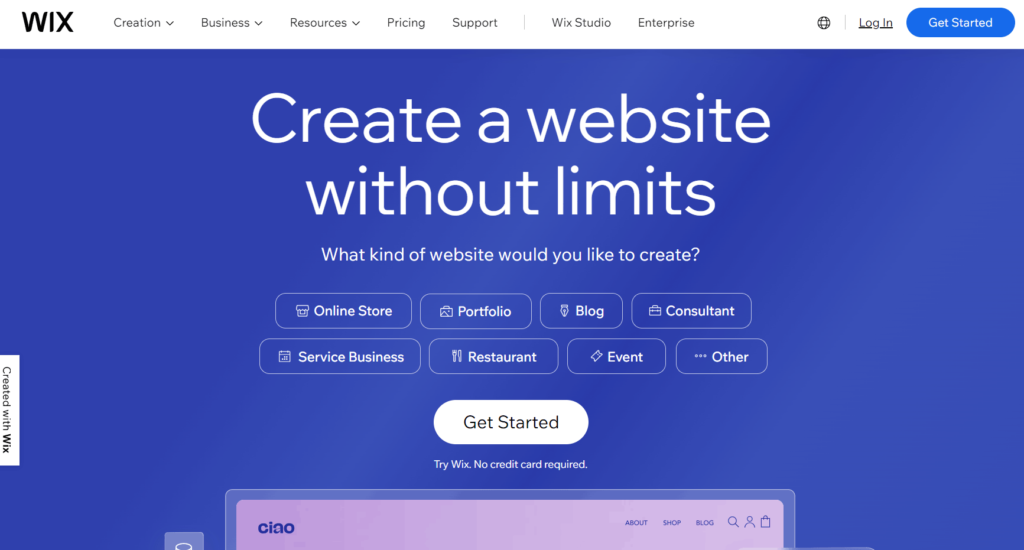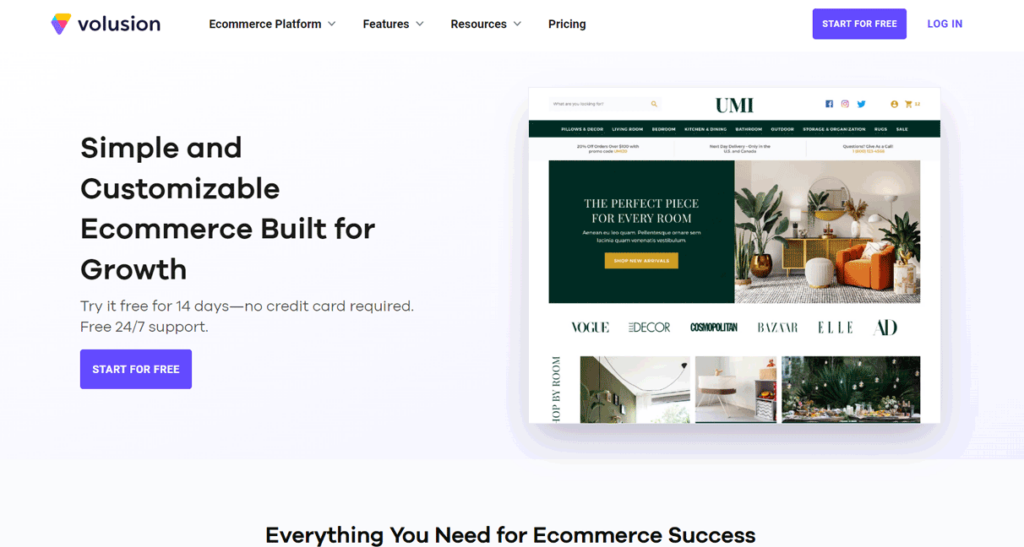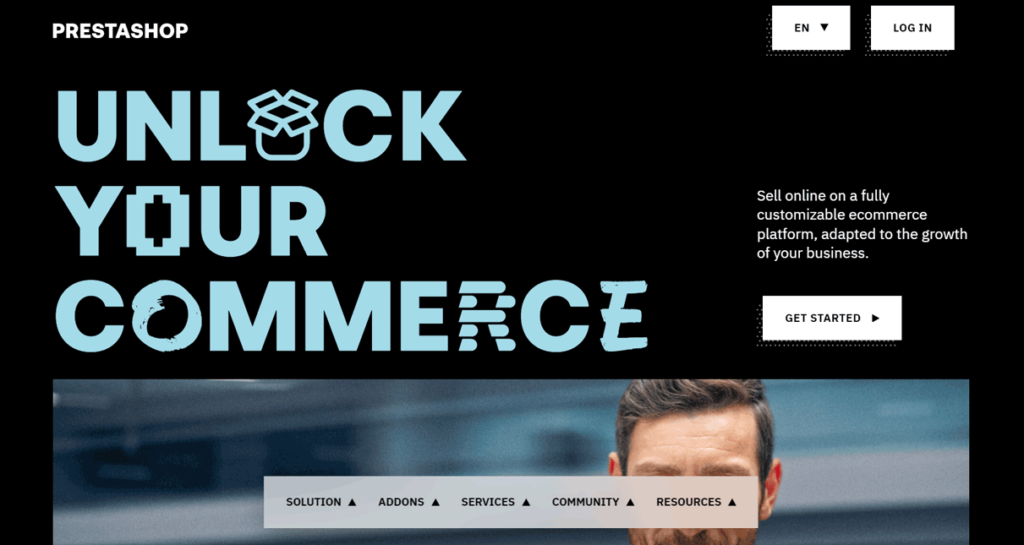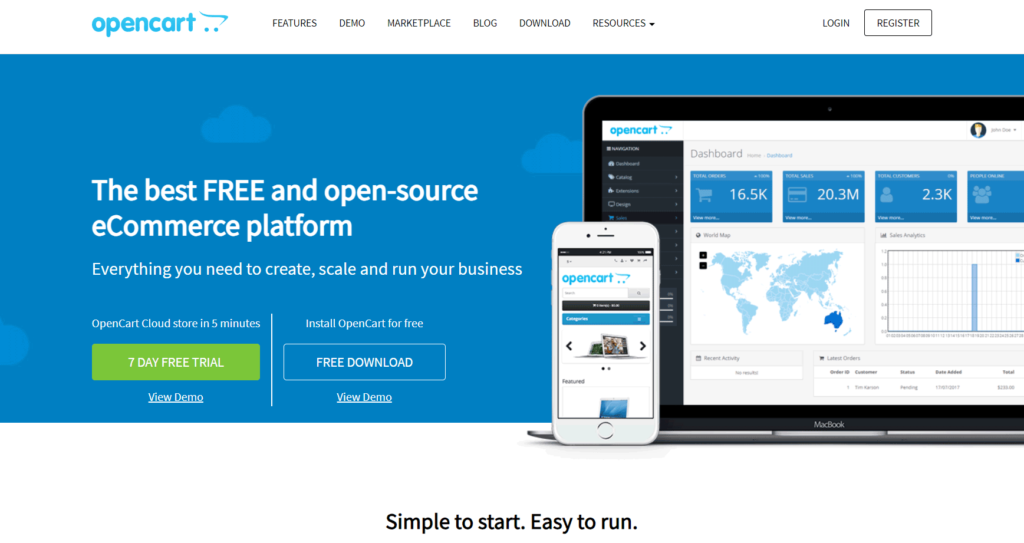Table of Contents
Introduction
When establishing an online store, you face the crucial decision of selecting the right ecommerce platform. Your choice will significantly impact your store’s functionality, user experience, and ultimately, its success.
You need a platform that aligns with your business goals, accommodates your products, and provides robust features for managing orders, inventory, and customer relationships. Additionally, considering factors like scalability, customization options, and integration capabilities is essential for future growth.
With numerous options available, navigating through the plethora of ecommerce platforms can be daunting. However, by understanding your specific requirements and thoroughly researching each platform’s offerings, you can make an informed decision tailored to your business needs.
1. Shopify
2. WooCommerce
3. BigCommerce
4. Magento (now Adobe Commerce)
5. Squarespace
6. Wix
7. Volusion
8. PrestaShop
9. OpenCart
10. Ecwid
Overview of Best Ecommerce Platforms for Online Store
How to Choose the Best Ecommerce Platform for Your Online Store
Pros & Cons of Best Ecommerce Platforms for Online Store
What to Watch Out For…
Pro Tips
Recap
1. Shopify
9.9/10
Shopify is an ecommerce platform that empowers you to create and manage your online store effortlessly. You can customize your store’s design, add products, and process orders seamlessly. With its user-friendly interface and robust features, you can efficiently run your online business and provide a smooth shopping experience for your customers.
- • Versatile customization options available
• Intuitive user interface design
• Seamless order processing capabilities
• Extensive app integrations for functionality
• Reliable customer support services
- • Limited built-in features
• Additional transaction fees apply
• Steeper learning curve initially
• Customization may require coding knowledge
• Limited scalability for larger businesses
- • Customizes store designs easily
• Offers you various payment gateways
• Provides abandoned cart recovery features
• Enables multichannel selling integrations
• Facilitates dropshipping with app support
• Allows product reviews and ratings management
• Offers you analytics for sales tracking
MORE >>> OpenCart Ecommerce Platform Review
2. WooCommerce
9.7/10
Explore WooCommerce, an ecommerce platform that allows you to transform your WordPress website into a fully functional online store. You can utilize its customizable features to create a tailored shopping experience for your customers. With WooCommerce, you have the flexibility to manage products, process orders, and handle payments directly on your website.
- • Flexible customization options available
• Seamless integration with WordPress sites
• Wide range of available plugins
• User-friendly interface for management
• Responsive customer support services
- • Highly dependent on WordPress site
• Limited scalability for larger stores
• Additional plugin expenses may be required
• Complexity increases with extensive customization
• Potential performance issues with heavy traffic
- • Customizes product attributes and variations easily
• Offers you built-in tax calculation options
• Provides shipping rate calculation tools
• Facilitates coupon and discount management
• Integrates with popular payment gateways seamlessly
• Enables inventory management with tracking capabilities
• Offers you extensive documentation and community support
3. BigCommerce
9.6/10
The next ecommerce platform that empowers you to build and grow your online store with ease is BigCommerce. You can leverage its robust features to create a professional storefront, manage inventory efficiently, and process orders seamlessly. With BigCommerce, you have the tools you need to succeed in the competitive world of ecommerce.
- • Scalable for growing businesses
• Advanced built-in marketing features available
• Responsive customer support services offered
• Highly customizable with extensive design options
• Seamless integration with various payment gateways
- • Higher monthly subscription costs compared to competitors
• Steep learning curve for beginners
• Certain features require additional app purchases
• Limited options for product variants
- • Provides built-in SEO optimization tools for visibility
• Offers multi-currency support for international sales
• Integrates with various shipping carriers seamlessly
• Includes abandoned cart recovery functionality to increase sales
• Facilitates easy product search and filtering options
• Allows for seamless integration with popular marketplaces
• Provides detailed analytics and reporting features
4. Magento (now Adobe Commerce)
9.3/10
You can create a robust online store tailored to your specific needs with Magento. Its extensive features allows you to customize your store’s design, manage products effectively, and streamline the checkout process. With Magento, you have the flexibility to scale your online business and provide a seamless shopping experience for your customers.
- • Highly customizable for unique needs
• Scalable for growing businesses
• Rich in built-in features
• Strong community support available
• Robust security measures implemented
- • Complexity may overwhelm beginners
• Significant technical expertise for setup
• High development and maintenance costs
• Resource-intensive for smaller businesses
• Limited hosting options available
- • Empowers global multi-store management capabilities
• Offers you extensive third-party integrations options
• Provides advanced reporting and analytics tools
• Supports a wide range of payment gateways
• Enables seamless mobile commerce experiences
• Offers you customizable customer segmentation options
• Facilitates easy product catalog management
5. Squarespace
9.3/10
Do you know that Squarespace is an ecommerce platform that empowers you to create a stunning online store effortlessly? With Squarespace, you can design a visually appealing website, showcase your products beautifully, and manage your online store seamlessly. You have the tools you need to succeed in the competitive world of ecommerce.
- • Beautifully designed templates available
• Intuitive and user-friendly interface
• Integrated blogging and email marketing
• Effective 24/7 customer support provided
• Efficient all-in-one platform for convenience
- • Limited third-party integrations
• Transaction fees apply on sales
• Advanced features may be lacking
• Limited scalability for large stores
- • Offers you built-in SEO optimization tools for visibility improvement
• Provides mobile-responsive design for enhanced accessibility
• Allows for easy product inventory management
• Offers you secure SSL encryption for data protection
• Provides integrated analytics for performance tracking
• Enables seamless social media integration for marketing
• Offers you customizable checkout process for user convenience
PRO TIPS >>> How To Choose The Best E-commerce Platform
6. Wix
9.0/10
Wix is an ecommerce platform that enables you to effortlessly build and manage your online store. With Wix, you have the freedom to create a professional storefront that reflects your brand. You can easily add products, customize your website design, and process orders seamlessly.
- • User-friendly interface for beginners
• Wide range of customizable templates available
• Integrated SEO tools for visibility
• Responsive customer support services offered
• Affordable pricing plans for businesses
- • Limited scalability for large stores
• Transaction fees on some plans
• Limited customization options for advanced users
• High dependency on Wix ecosystem for functionality
• Less flexibility compared to some competitors
- • Provides AI-powered website design assistance
• Allows for easy product import/export
• Offers you customizable product galleries and grids
• Enables seamless social media integration for marketing
• Provides built-in email marketing tools
• Offers you mobile-responsive design for accessibility
• Supports multiple payment options for customers
7. Volusion
8.9/10
Another ecommerce platform designed to help you create and manage your online store is Volusion. It provides you with tools for designing your store, managing inventory, and processing orders efficiently. With Volusion, you can customize your store to fit your brand and offer a seamless shopping experience for your customers.
- • User-friendly interface for beginners
• Comprehensive built-in features available
• Customizable templates for unique designs
• Effective 24/7 customer support for assistance
• Secure hosting for data protection
- • Transaction fees may apply
• Less flexibility compared to competitors
• Certain advanced features require coding knowledge
• Costly pricing plans for some
- • Provides built-in CRM for customer management
• Offers you robust inventory management capabilities
• Facilitates easy order processing and fulfillment
• Allows for seamless integration with popular payment gateways
• Provides customizable product options and variants
• Offers you responsive mobile commerce experiences
• Includes built-in promotional tools for marketing efforts
8. PrestaShop
8.8/10
PrestaShop is an open-source ecommerce platform that allows you to set up and manage your online store. With PrestaShop, you have full control over the customization of your store’s design and functionality. It offers you a wide range of themes, modules, and integrations to enhance your store’s features and performance.
- • Customizable for unique needs
• Open-source for flexibility
• Extensive range of features available
• Scalable for growing businesses
• Active community support provided
- • Steep learning curve initially
• Technical expertise for setup
• Certain advanced features may cost extra
• Performance issues with heavy customization
- • Enables multi-store management capabilities easily
• Offers you built-in product comparison functionality for customers
• Provides advanced SEO optimization tools
• Supports various payment methods for flexibility
• Facilitates easy product attribute management
• Offers you customizable shipping options for convenience
• Allows for integration with popular third-party apps
9. OpenCart
8.7/10
With OpenCart, you can personalize your online store to fit your specific requirements. You have the flexibility to manage products, orders, and payments efficiently. It offers you a range of extensions to enhance your store’s functionality and meet your ecommerce business needs.
- • Flexible customization options available
• Affordable pricing for small businesses
• Wide range of extensions offered
• User-friendly interface for management
- • Limited built-in features
• Steeper learning curve initially
• Certain extensions may be costly
• Customization requires technical knowledge
• Less scalable for large businesses
- • Provides customizable product options and attributes
• Allows for integration with various payment gateways
• Facilitates easy theme customization for branding
• Offers you built-in marketing and promotion tools
• Provides detailed sales reporting and analytics features
• Supports multiple languages and currencies for global reach
• Offers you multi-store management capabilities for scalability
1o. Ecwid
8.5/10
Ecwid is an ecommerce platform designed to help you sell online. It seamlessly integrates with your website or social media, offering you easy setup and management of your store. You can customize your store to match your brand and efficiently handle inventory and orders to grow your online business.
- • User-friendly interface for beginners
• Seamless integration with existing websites
• Easy setup and management process
• Customizable to match your brand
• Efficient inventory and order management
- • Limited advanced customization options
• Certain features require premium plans
• Limited design flexibility compared to competitors
• Heavy reliance on integrations for functionality
- • Integrates seamlessly with social media platforms
• Offers you mobile-responsive storefront for accessibility
• Provides automatic tax calculation for convenience
• Allows for easy product import/export
• Offers you abandoned cart recovery functionality to boost sales
• Facilitates real-time shipping calculations for accurate rates
• Supports multilingual storefronts for global reach
Overview of Best Ecommerce Platforms for Online Store

In selecting the best ecommerce platform for your online store, you need a solution that caters to your specific needs. From Shopify’s user-friendly interface to WooCommerce’s flexibility with WordPress, each platform offers you unique features to support your business growth. Whether you prioritize customization, scalability, or integration capabilities, you have these options to choose from based on your requirements and goals.
How to Choose the Best Ecommerce Platform for Your Online Store
To select the best ecommerce platform for your online store, follow the steps below:
- Identify your business needs and goals first
- Research available ecommerce platforms thoroughly
- Consider your budget and pricing plans carefully
- Evaluate platform features and customization options
- Assess scalability and growth potential for future expansion
- Review customer support and community resources availability
- Choose the platform that aligns with your requirements
GET SMARTER >>> Is Shopify the Best Ecommerce Platform?
Pros & Cons of Best Ecommerce Platforms for Online Store
Pros
- Caters to various business sizes and industries
- Grows with your business needs
- Provides opportunities for global reach and accessibility
- Offers diverse customization options to suit different brands
- Streamlines the online selling process for smoother operations
Cons
- Technical expertise for setup and maintenance required
- Certain platforms have high subscription fees and transaction costs
- Heavy reliance on third-party integrations for extended functionalities
- Certain features may be restricted or require additional plugins
What To Watch Out For
While choosing an ecommerce platform your online store, watch out for:
- Overly complicated setup and management processes
- High subscription fees and transaction charges
- Platform restrictions on customization and features
- Heavy reliance on third-party integrations
- Potential downtime and technical issues
- Inadequate security measures
Pro Tips
 Use these pro tips to determine the best ecommerce platform for your online store:
Use these pro tips to determine the best ecommerce platform for your online store:
- Look for mobile-responsive design capabilities
- Consider scalability for future growth
- Prioritize security features and protocols
- Test platform usability before you commit
- Seek customer reviews and testimonials
- Consider ease of inventory management features
Recap
When choosing the best ecommerce platform for your online store, you have several options to consider. You need a platform like Shopify, WooCommerce, Squarespace, Magento, or BigCommerce that aligns with your business goals and budget. Research thoroughly, comparing features and scalability. Test usability and security, and seek feedback from other users to make an informed decision.




